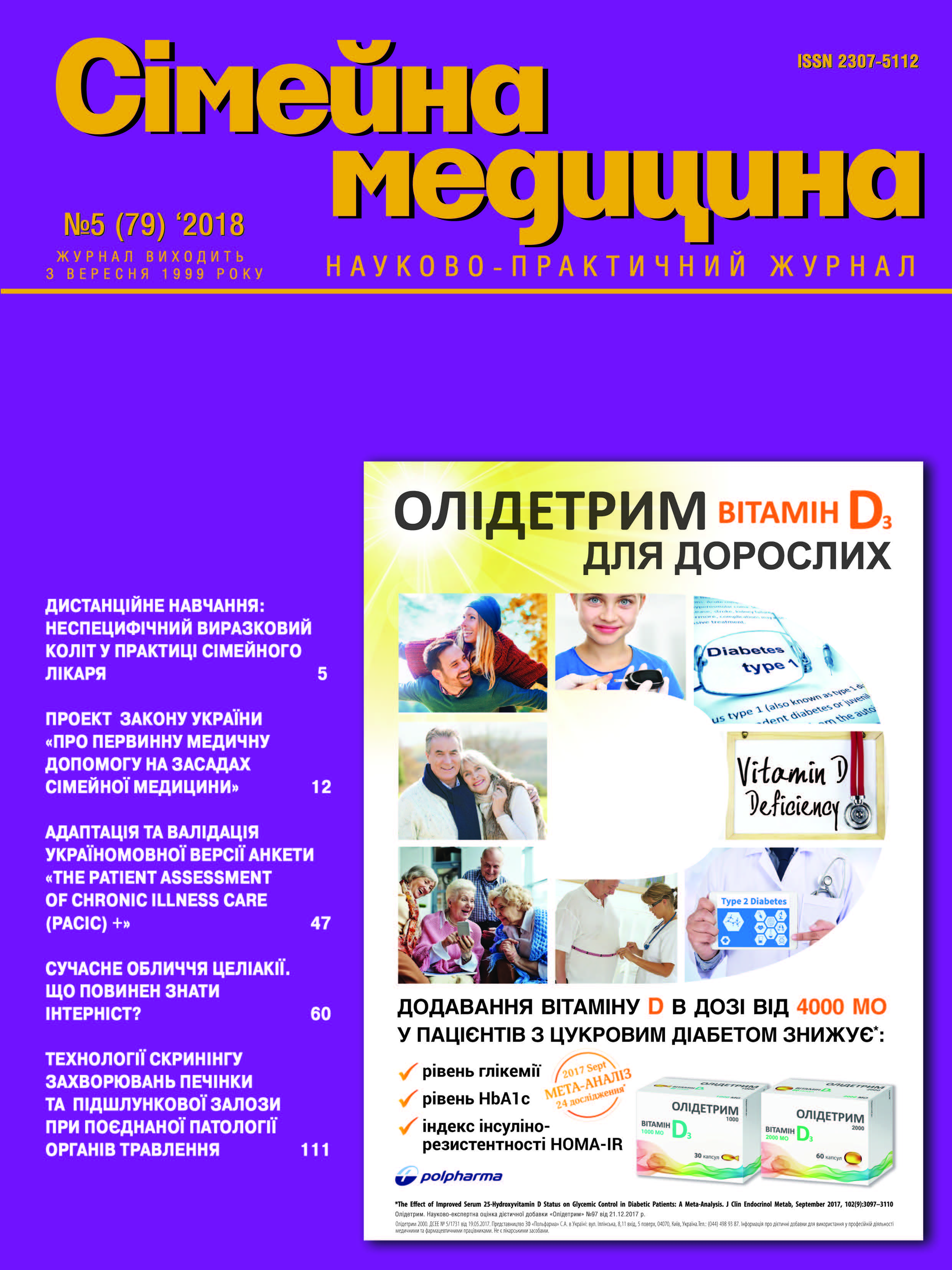Effectiveness of Training Sessions in Changing the Level of Knowledge and Motivation of Family Doctors to the Implementation of Evidence-based Screening into Their Clinical Practice
##plugins.themes.bootstrap3.article.main##
Abstract
The objective: evaluation of the effectiveness of training sessions in changing the level of knowledge and motivation of Family Doctors to the implementation of evidence-based screening into their clinical practice
Materials and methods. Before the interactive training, immediately after, 3 and 12 months after the training the knowledge, as well as the assessment of the motivation to introduce knowledge into practical activities have been assessed. The total number of persons who took part in the testing was 334 persons, including 68,7% of the family doctors and 31,3% of nurses.
Results. According to the test results, the average level of knowledge of family doctors at the beginning of the training was quite low and amounted to only 6,1±1,8 points out of 20 possible, immediately after the training the level of knowledge increased significantly and amounted to 14,9±2,3 points (p<0,001), and 3 months after the training, the average level of knowledge decreased to 10,21±3,21 points, but was higher than before the start of the training (p>0,005). The level of motivation of health workers at the beginning of the training was average; immediately after the training, the level of motivation rose to high: 19,95±2,38 and was significantly higher than at the beginning (p>0,005). 3 months after the training, the level of motivation of the training participants to implement changes in practice decreased slightly and amounted to 19,11±3,18 points (p<0,005), and 12 months after the training it was significantly lower than the previous data – 16,1±4,53 (p>0,005) and actually the starting starting level of motivation registered before the training.
Conclusions. Interactive trainings have proven to be an effective way to increase the level of knowledge and motivation of health workers to implement evidence-based recommendations for the prevention and screening of cardiovascular risk in their clinical practice. Although the level of knowledge of health workers remained stable after 3 and 12 months after the training, the level of motivation 12 months after the training significantly decreased in the absence of a number of factors supporting the motivation of medical personnel to change.##plugins.themes.bootstrap3.article.details##

This work is licensed under a Creative Commons Attribution 4.0 International License.
Authors retain the copyright and grant the journal the first publication of original scientific articles under the Creative Commons Attribution 4.0 International License, which allows others to distribute work with acknowledgment of authorship and first publication in this journal.
References
Гуревич Р.С. Інформаційно-комунікаційні технології в професійній освіті майбутніх фахівців / Р.С. Гуревич, М.Ю. Кадемія, М.М. Козяр; за ред. член-кор. НАПН України Гуревича Р.С. – Львів: ЛДУ БЖД, 2012. – 380 с.
Кадемія М.Ю. Інформаційно-комунікаційні технології навчання: Cловник-глосарій / М.Ю. Кадемія, М.М. Козяр, Т.Є. Рак. – Львів: СПОЛОМ, 2011. – 136 с.
Енциклопедія освіти / Акад. пед. наук України: [гол. ред. В.Г. Кремень]. – К.: Юрінком Інтер, 2008. – 1040 с.
Новые педагогические и информационные технологии в системе образования: учеб. пособие для студ. пед. вузов и системы повыш. квалиф. пед. кадров / [Е.С. Полат, М.Ю. Бухаркина, М.В. Моисеева, А.Е. Петров]; под. ред. Е.С. Полат. – 2-е изд., стер. – М.: Издат. центр «Академия», 2005. – 272 с.
Фурс М.В. Интерактивные формы обучения – средство повышения уровня профессиональной подготовки студентов / М.В. Фурс // Вестник высшей школы. – № 10. – Ноябрь. – 2011. – С. 29.
Steimle Y., Gurevych I. Muhlhauser M. Notetaking in University Courses and its Implications on e-learning Systems. In: Tagungsband der 5.e. – Learning Fachtagung Informatik, Siegen, Germany, pp. 45–56. PDF





